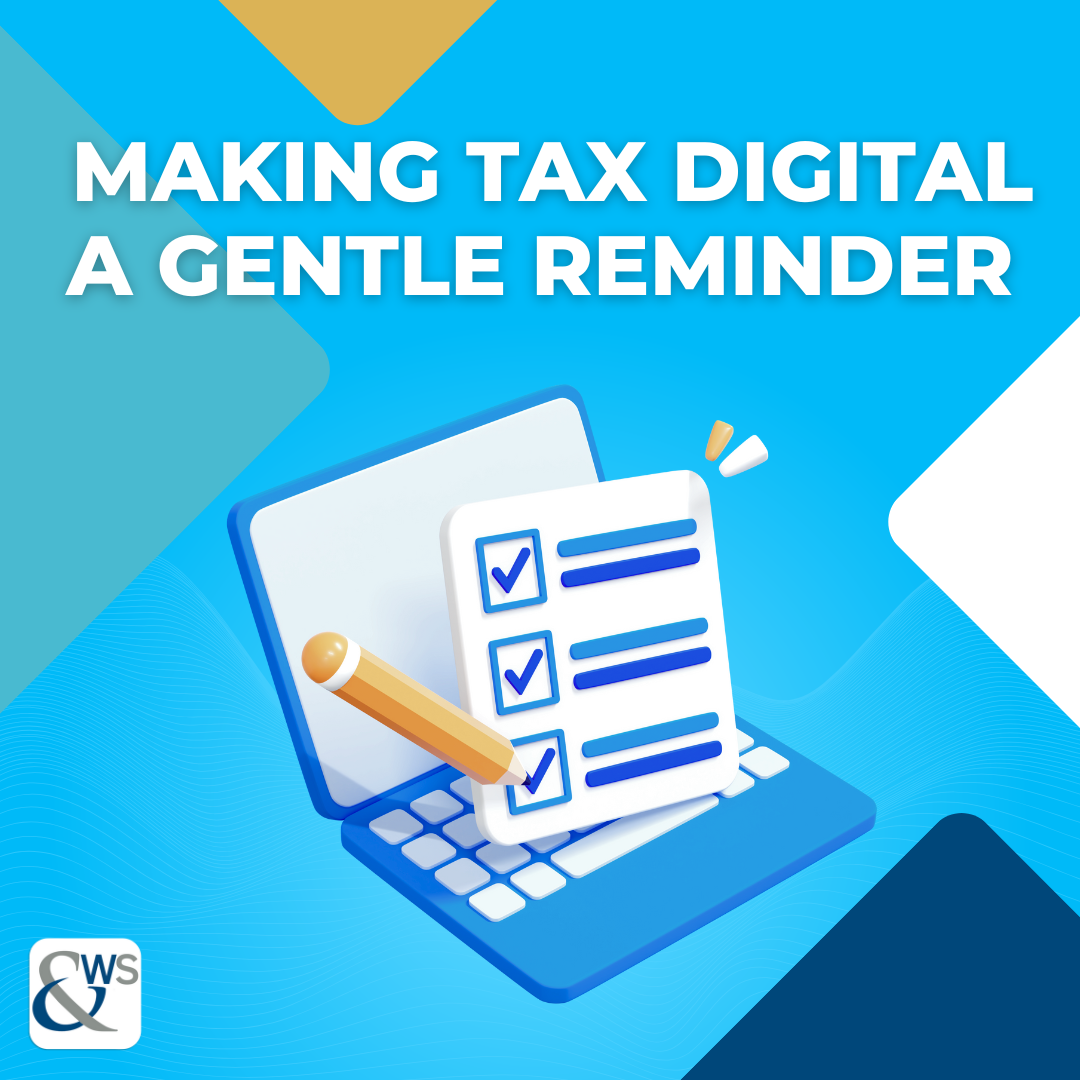We know that the deadlines for Making Tax Digital are some way off for sole traders and landlords, but according to Walker & Sutcliffe’s Tax Manager, Anne McCoubrey, it’s time to act!
What is Making Tax Digital?
Making Tax Digital is part of the Government’s 10-year strategy to improve the tax system by removing manual processing and migrating all businesses to digital filing.
From April 2026, self-employed people and landlords earning above £50,000 will have to follow the new ways of processing data requested by HMRC.
According to gov.uk “Making Tax Digital requires qualifying businesses and landlords to maintain digital records and update HMRC each quarter using compatible software.”
While it is hoped that the results will reduce errors and retain all records digitally, it has several implications for both accountants and businesses.
What does making Tax Digital mean for businesses?
To support the changes, businesses will have to invest in or gain access to compatible software that will connect directly to HMRC.
In addition, many will require upskilling to evolve their accounting practices from manual to digital.
Finally, time needs to be added for the extra admin that will come from the new ways of working.
What can accountants and taxpayers expect, and how should they best prepare?
Change your mindset!
We know that no one likes the idea of extra admin’, but it is mandatory so thinking differently could help. Rather than thinking this is going to take more time, consider how this could be used to your advantage.
TOP TIP: One way for businesses to prepare for the change could be to join the HMRC’s voluntary year-long trial. It is away to understand the process and start the move as early as possible. However, this will not be possible or suitable for all businesses, so please speak to your accountant or advisor first.
Alternatively, we would advise businesses to follow four easy steps to help prepare for the future, ultimately giving themselves the time to put into practice what will become a legal requirement.
1. Advice
Access advice on the new system and how it will work. Identifying the right software and ensuring that it is compatible and compliant is essential. The initial outlay may be a challenge for some business owners, however, once it is in place, any further costs should be negligible. Furthermore, given the fact that the mandate does not come into effect until2026, this investment can now be spread across the year to make it more manageable.
2. Training
Getting the right expert training to ensure that you are filing and saving digital documents correctly will avoid potential penalties. Trialling this in the run-up to the changes will also ensure the business is ready when MTD is enforced. What’s more, embracing the changes should remove the need for paper-based documentation altogether. It will not require that both are needed.
3. Talk to the experts
Relying on a chartered accountant will save time, money and worry. Still, the need to better understand the process is not without its merits, particularly as the details change along with the process .In all instances, we advise our clients to ask any questions, even when they will not be completing the filing or saving the digital documents.
4. Access data and expertise
Once the systems are in place, use the data and expertise of a chartered accountancy practice to support your business and drive your organisation to meet objectives and become the best it can be.
Like most updates from HMRC, there will be changes along the way, and keeping up to date with all requirements is key. The main point is that making the necessary changes now will only support the transition when it becomes mandatory.
Can I just wait until the deadline?
MTD is likely to require major changes to record-keeping and reporting. In addition, some may find the process and requirements create panic and extra stress – especially in the early stages when unexpected problems arise. This may be especially so for those businesses that are not VAT registered, as they will not be used to the discipline of regular record keeping and reporting.

